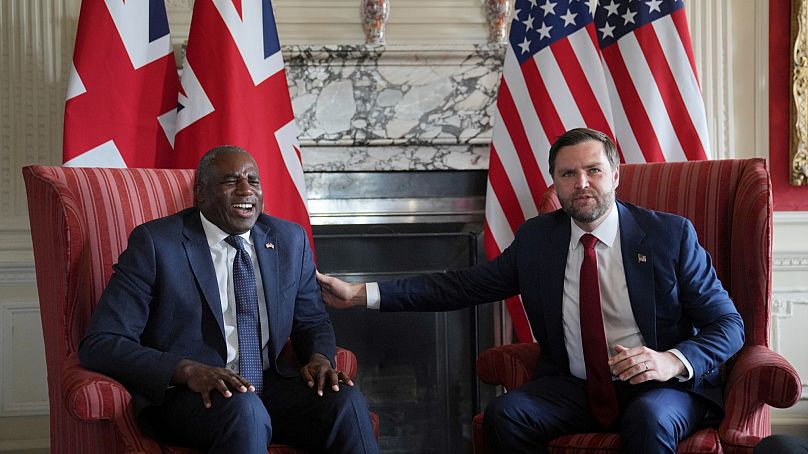NATO Rushes to Fortify Eastern Front as Putin Unleashes Nuclear Missile Drills

Poland has accused Russia of an "unprecedented drone incursion" over its airspace, involving 19 Russian drones on a Wednesday, prompting a swift and robust response from NATO. This incident, which Polish and European leaders firmly believe was a deliberate act, has significantly escalated political tensions across Europe. Some of the drones were successfully shot down, while others crashed into fields and even a house in eastern Poland.
During an urgent UN Security Council session in New York, Poland's Secretary of State Marcin Bosacki presented photographic evidence of a downed drone and a damaged house, stating unequivocally, "We know – and I repeat – we know that it was not a mistake." The United States and European allies, including France and Germany, expressed strong solidarity with Poland. Acting US Ambassador to the UN Dorothy Shea affirmed, "The United States stands by our Nato allies in the face of these alarming airspace violations, and rest assured, we will defend every inch of Nato territory." Russia, however, denied targeting Poland, with its military stating it had "no plans to target facilities" in Polish territory and later suggesting the drones might have veered off course from an attack in western Ukraine.
In response to these airspace violations, NATO Secretary-General Mark Rutte announced on Friday the launch of "Operation Eastern Sentry," a new mission designed to bolster the alliance's eastern flank. Rutte condemned the incursions as "reckless and unacceptable," emphasizing, "We can't have Russian drones entering allied airspace." NATO's top commander, Alexus Grynkewich, reiterated the alliance's commitment to defending "every inch of the alliance's territory," assuring citizens of a rapid response.
Several NATO members swiftly committed resources to the "Eastern Sentry" mission. Denmark pledged two F-16 fighter jets to support Poland's air defense, along with a warship, with Prime Minister Mette Frederiksen stating, "Putin will stop at nothing, and he is testing us." France committed three Rafale fighter jets, while Germany provided four Eurofighters and announced it would "intensify its engagement along Nato's eastern border" by extending and expanding air policing over Poland, and by stationing a German brigade in Lithuania. The UK Ministry of Defence stated it was "fully committed" to strengthening the Eastern Sentry and would provide more details soon. The Netherlands and Czech Republic had also already pledged to send defenses to Poland.
Adding to the tension, the drone incursion coincided with the launch of the Zapad-2025 ('West') joint military exercises between Russia and Belarus, scheduled from Friday until September 16. These large-scale drills are taking place across Russian territory, Belarus, and in the Baltic and Barents Seas, notably near NATO's eastern flank. The drills are considered a significant factor in the escalating security concerns in the region.
The Zapad-2025 exercises involve extensive land, air, and sea operations. Russia's Defence Ministry stated their objectives are to "improve the skills of commanders and staffs, the level of co-operation and field training of regional and coalition groupings of troops," simulating repelling attacks and "restoring the territorial integrity of the Union State and crushing the enemy." Critically, the drills include practice for "planning the use of" nuclear weapons and the integration of the new nuclear-capable Oreshnik ballistic missiles, which Moscow has promised to station in Belarus. Past Zapad drills have included simulations of nuclear attacks on Warsaw.
Poland and other regional allies reacted with heightened security measures. Poland, viewing the drills as "very aggressive" and a potential rehearsal for occupying the Suwalki corridor, deployed 40,000 troops to its border with Belarus and ordered the complete closure of all remaining border crossings with Belarus for the duration of the exercises. Polish Prime Minister Donald Tusk warned of "critical days" ahead, declaring that Poland was closer to "open conflict" than at any point since World War II. Lithuania and Latvia also ramped up their border security and announced partial airspace closures in response to the military exercises.
International analysts and leaders widely interpreted the drone incident and the Zapad drills as a deliberate test of NATO's readiness and resolve. European leaders described the incursion as a "deliberate provocation," despite Moscow's denial. Concerns were amplified by the precedent of Zapad-2021 drills, which involved far more troops than publicly stated and preceded Russia's invasion of Ukraine months later. While Kremlin spokesperson Dmitry Peskov maintained the drills were "planned exercises" "not aimed against anyone," military expert Major General Agostinho Costa warned that Russia was sending "a message... that if necessary, they will escalate the conflict to a nuclear level," highlighting the danger of Europe not taking the Kremlin seriously.
US President Donald Trump, while voicing frustration with Putin's refusal to end the war in Ukraine and hinting at sanctions, also suggested the Polish drone incursion "could have been a mistake." This suggestion was firmly dismissed by Polish leaders; Prime Minister Tusk stated on X, "We would also wish that the drone attack on Poland was a mistake. But it wasn't. And we know it." Ukrainian President Zelensky also warned that the airspace violation was a "dangerous precedent" for Europe, calling it "no accident." Outgoing French foreign minister Jean-Noel Barrot summoned the Russian ambassador over the "unacceptable" incursion, which he deemed a deliberate strategy to intimidate and test NATO allies.
From NATO's perspective, the alliance's initial response to the drone incident, with European countries quickly scrambling jets to support Poland even without immediate US support, was seen as a successful "test" of its readiness. The current geopolitical landscape, marked by rival military drills between Russia and NATO's eastern members, is reminiscent of the Cold War era, signaling a sustained period of high vigilance and strategic tension along the alliance's borders.
You may also like...
Genetic Engineering: Ethical Innovation or Pandora’s Box?

"Genetic engineering promises cures, better crops, and scientific breakthroughs—but is humanity ready for the ethical di...
UCL Explodes: Brawl and Red Card Rock Controversial Monaco vs Man City Thriller!

A dramatic Champions League match saw Manchester City draw against Monaco due to a controversial late penalty. Erling Ha...
PSG Stuns Barcelona, Ending Undefeated Run with Ramos' Late Strike!
)
Paris Saint-Germain triumphed over Barcelona with a 2-1 victory at the Olympic Stadium, sealed by a late Goncalo Ramos g...
Sean Astin Leads SAG-AFTRA's Fierce Stance on AI, Vows Fight for Fair Compensation

The emergence of AI performer Tilly Norwood has intensified the debate on technology's role in Hollywood, leading SAG-AF...
Quentin Tarantino's Legendary 'Kill Bill: The Whole Bloody Affair' Hits Theaters for the First Time Ever!

Quentin Tarantino's complete vision, "Kill Bill: The Whole Bloody Affair," will finally receive its first nationwide the...
Trump Adviser's ICE Threat at Bad Bunny's Super Bowl Performance Draws Jay-Z's Fierce Defense

Bad Bunny's selection as the 2026 Super Bowl Halftime Show headliner has sparked political controversy, with a Trump adm...
Hollywood Split Scandal: Nicole Kidman Reportedly 'Blindsided' by Keith Urban's New Romance

Actress Nicole Kidman is reportedly "blindsided" by her sudden divorce from country singer Keith Urban after 19 years of...
Shocking Confession: Robbie Williams Reveals Decades-Long Secret Battle with Tourette's

Robbie Williams has bravely opened up about his mental health, revealing his experience with “inside Tourette’s” and his...


